DS Automobiles DS 3 vs Toyota C-HR - Differences and prices compared
Compare performance (156 HP vs 223 HP), boot space and price (28400 £ vs 29100 £ ) at a glance. Find out which car is the better choice for you – DS Automobiles DS 3 or Toyota C-HR?
Costs and Efficiency:
Price and efficiency are key factors when choosing a car – and this is often where the real differences emerge.
DS Automobiles DS 3 has a minimal advantage in terms of price – it starts at 28400 £ , while the Toyota C-HR costs 29100 £ . That’s a price difference of around 686 £.
Fuel consumption also shows a difference: Toyota C-HR manages with 0.80 L and is therefore convincingly more efficient than the DS Automobiles DS 3 with 5 L. The difference is about 4.20 L per 100 km.
As for electric range, the DS Automobiles DS 3 performs significantly better – achieving up to 400 km, about 332 km more than the Toyota C-HR.
Engine and Performance:
Under the bonnet, it becomes clear which model is tuned for sportiness and which one takes the lead when you hit the accelerator.
When it comes to engine power, the Toyota C-HR has a noticeable edge – offering 223 HP compared to 156 HP. That’s roughly 67 HP more horsepower.
In acceleration from 0 to 100 km/h, the Toyota C-HR is clearly perceptible quicker – completing the sprint in 7.40 s, while the DS Automobiles DS 3 takes 9.10 s. That’s about 1.70 s faster.
In terms of top speed, the DS Automobiles DS 3 performs minimal better – reaching 196 km/h, while the Toyota C-HR tops out at 180 km/h. The difference is around 16 km/h.
Space and Everyday Use:
Whether family car or daily driver – which one offers more room, flexibility and comfort?
Both vehicles offer seating for 5 people.
In curb weight, DS Automobiles DS 3 is noticeable lighter – 1249 kg compared to 1505 kg. The difference is around 256 kg.
In terms of boot space, the Toyota C-HR offers clearly perceptible more room – 447 L compared to 350 L. That’s a difference of about 97 L.
In maximum load capacity, the Toyota C-HR performs slight better – up to 1155 L, which is about 105 L more than the DS Automobiles DS 3.
When it comes to payload, DS Automobiles DS 3 barely noticeable takes the win – 466 kg compared to 425 kg. That’s a difference of about 41 kg.
Who wins the race in the data check?
The Toyota C-HR is far ahead overall in the objective data comparison.
This result only shows which model scores more points on paper – not which of the two cars feels right for you.
Costs and Consumption
View detailed analysis
Engine and Performance
View detailed analysis
Dimensions and Body
View detailed analysis

Toyota C-HR
DS Automobiles DS 3
The DS 3 is a chic, compact premium hatch that stands out with couture styling and an interior that feels more boutique than bargain-bin. It serves up a poised, city-friendly drive with plenty of French flair — ideal for buyers who want personality as much as practicality and don’t mind turning heads at the lights.
details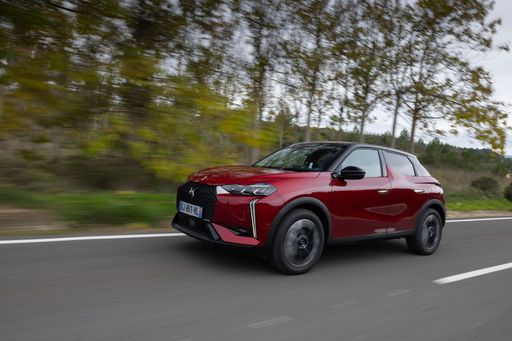
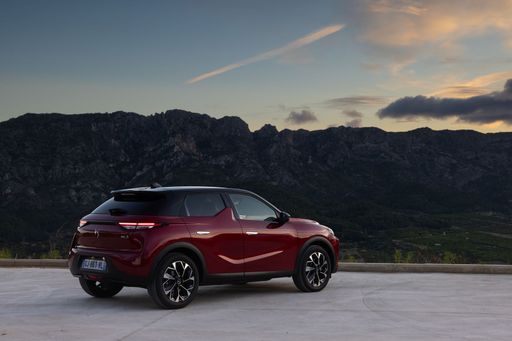
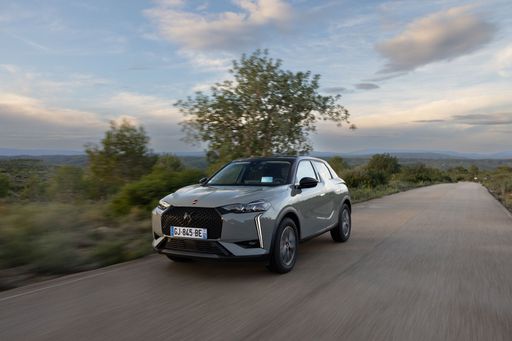
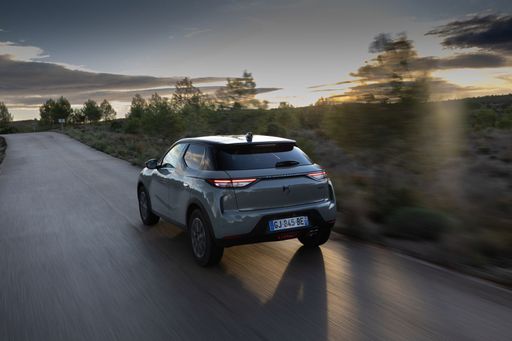
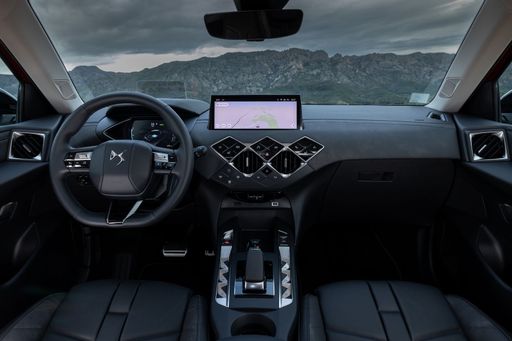
Toyota C-HR
The Toyota C-HR cuts a striking figure with its angular styling and coupe-like profile, so you’ll never go unnoticed in the supermarket car park. It balances everyday practicality with a nimble, city-friendly personality, making routine commutes feel a touch more fun without asking for forgiveness.
details




Costs and Consumption |
|
|---|---|
|
Price
28400 - 40500 £
|
Price
29100 - 42800 £
|
|
Consumption L/100km
5 L
|
Consumption L/100km
0.8 - 5.1 L
|
|
Consumption kWh/100km
15.50 kWh
|
Consumption kWh/100km
-
|
|
Electric Range
400 km
|
Electric Range
68 km
|
|
Battery Capacity
51 kWh
|
Battery Capacity
-
|
|
co2
0 - 112 g/km
|
co2
17 - 115 g/km
|
|
Fuel tank capacity
44 L
|
Fuel tank capacity
43 L
|
Dimensions and Body |
|
|---|---|
|
Body Type
SUV
|
Body Type
SUV
|
|
Seats
5
|
Seats
5
|
|
Doors
5
|
Doors
5
|
|
Curb weight
1249 - 1646 kg
|
Curb weight
1505 - 1755 kg
|
|
Trunk capacity
350 L
|
Trunk capacity
350 - 447 L
|
|
Length
4118 mm
|
Length
4362 mm
|
|
Width
1791 mm
|
Width
1832 mm
|
|
Height
1534 mm
|
Height
1558 - 1564 mm
|
|
Max trunk capacity
1050 L
|
Max trunk capacity
1076 - 1155 L
|
|
Payload
362 - 466 kg
|
Payload
375 - 425 kg
|
Engine and Performance |
|
|---|---|
|
Engine Type
Electric, Petrol MHEV
|
Engine Type
Full Hybrid, Plugin Hybrid
|
|
Transmission
Automatic
|
Transmission
Automatic
|
|
Transmission Detail
Reduction Gearbox, Dual-Clutch Automatic
|
Transmission Detail
CVT
|
|
Drive Type
Front-Wheel Drive
|
Drive Type
Front-Wheel Drive, All-Wheel Drive
|
|
Power HP
145 - 156 HP
|
Power HP
140 - 223 HP
|
|
Acceleration 0-100km/h
9.1 - 9.2 s
|
Acceleration 0-100km/h
7.4 - 9.9 s
|
|
Max Speed
150 - 196 km/h
|
Max Speed
175 - 180 km/h
|
|
Torque
230 - 260 Nm
|
Torque
-
|
|
Number of Cylinders
3
|
Number of Cylinders
4
|
|
Power kW
107 - 115 kW
|
Power kW
103 - 164 kW
|
|
Engine capacity
1199 cm3
|
Engine capacity
1798 - 1987 cm3
|
General |
|
|---|---|
|
Model Year
2024 - 2025
|
Model Year
2024 - 2025
|
|
CO2 Efficiency Class
A, C
|
CO2 Efficiency Class
C, B
|
|
Brand
DS Automobiles
|
Brand
Toyota
|
What drive types are available for the DS Automobiles DS 3?
The DS Automobiles DS 3 is offered with Front-Wheel Drive.




